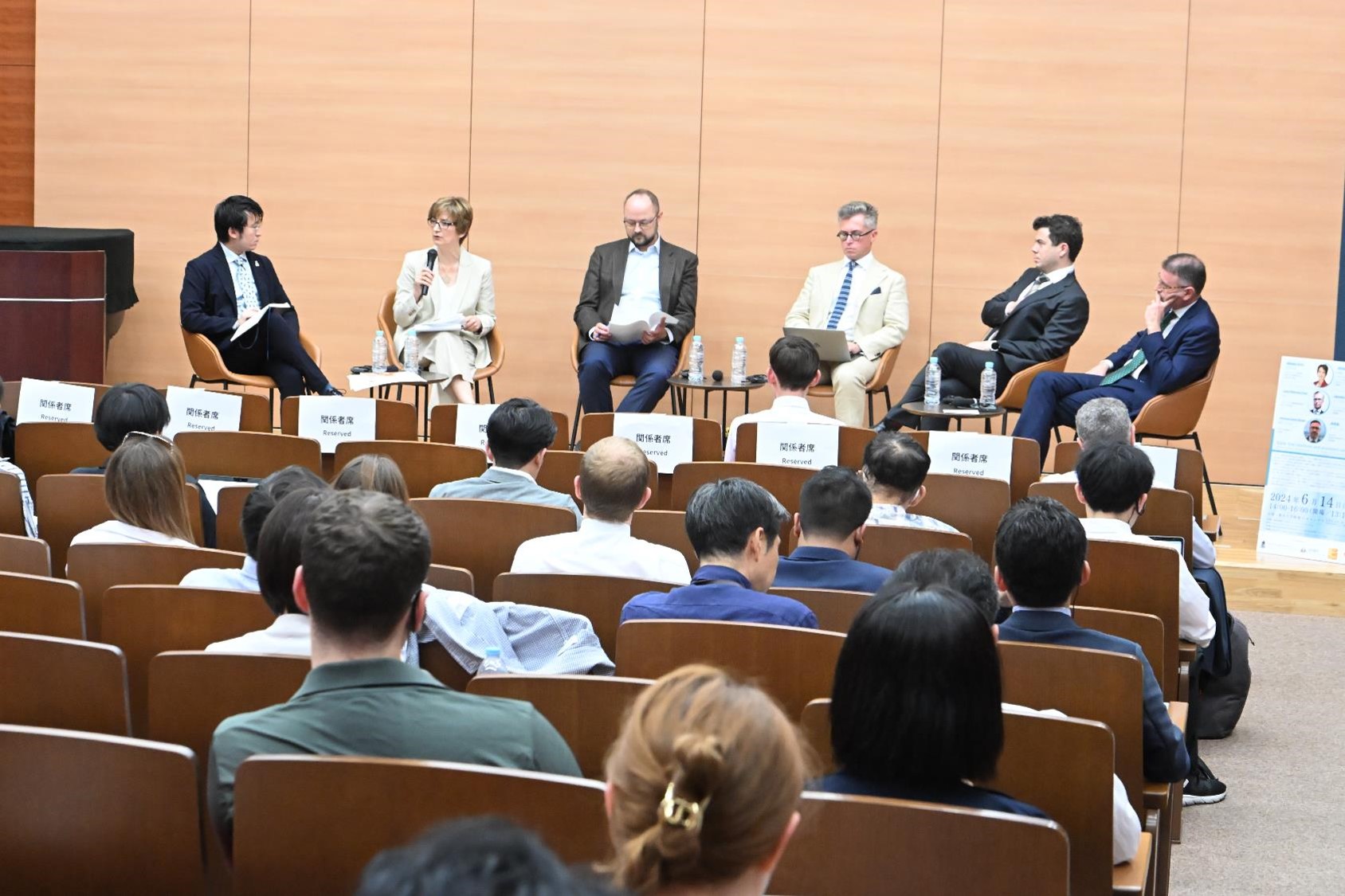ESRP, Research Center for Advanced Science and Technology, The University of Tokyo, and Law & Geoeconomics organized a symposium “State-Firm Relations and Economic Security: International Comparisons of U.S., China, EU, Australia, South America” with corporations from Helsinki Geoeconomics Week and Embassy of Finland in Japan (14/06/2024).
Five experts on the US, China, EU, Australia, and South America attended this symposium and exchanged information about economic security policies in each region. After that, Akira Igata, Director of ESRP and they discussed economic security policies.
Mireya Solís from The Brookings Institution explained the US shows signs of promoting economic security policies such as subsidies on advanced technology and export controls from a sense of crisis about challenges by China and dependent supply chains on other countries. She expressed the opinion that in the US, influence of industry circles on policy making is decreasing and the norm “Security first” is spreading.
William J. Norris from Texas A&M University explained the past and present economic security policies and economic statecraft in China. The Chinese government is seeking the development of advanced technology by 2035 Plan and diversification of supply chains by BRI. On the contrary, these promotions of economic security policies can increase the amount of importation of materials and food. In this context, he pointed out that these policies are fraught with danger for China itself.
Jens Hillebrand Pohl from Finnish Institute of International Affairs explained that the EU intends to promote economic security policies such as export controls, as premises for “single market”, based on the evidential analysis by member countries. He pointed out that the EU aims to maintain balance between the US and China, picking as an example that derisking is getting a lot of attention as an alternative to decoupling.
Darren Lim from Australian National University explained that the balance between economy and security in Australia is in a transitional period due to facing to the threat by China and the influence of pandemic. Australia aims to cooperate with not only allies such as the US but also neighboring countries as a member of Indo-Pacific countries.
Henrique Choer Moraes from the Ministry of Foreign Affairs of Brazil explained that South American countries don't pay attention to the regulations for economic security. He reported Chinese capital is extending influence on South America economy, on the other hand, the US capital is declining the influence on it. He also explained the EU aims to built cooperative ties with South American countries to deal with China.
In the discussion and Q&A session, topics that are essential to think hard to economic security such as “Unique relationship between public and private” and “Decoupling and Derisking” were discussed from the perspectives of each expert.
In the middle of the world is getting complicated, this symposium, that experts assembled from all over the world, exchanged information and discussed economic security has been meaningful.


